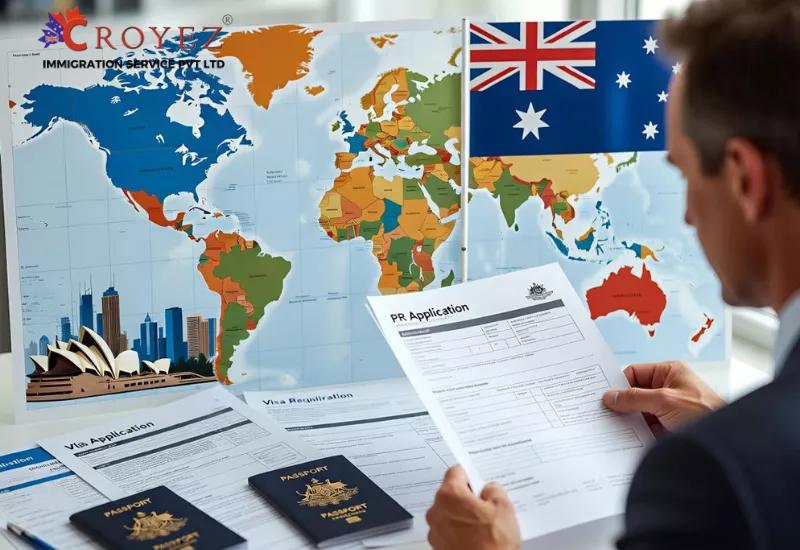This blog will ignite you with all the extensive information regarding the spousal work permit.
Understanding the Spousal Open Work Permit (SOWP)
What Is a Spousal Open Work Permit?A Spousal Open Work Permit Canada (SOWP) is crafted by the IRCC, which allows the spouse or common-law partner of a skilled worker or international student in Canada to come and live with them and work in Canada under any employer without providing the Labour Market Impact Assessment (LMIA). This permit is valid aligning with the validity of the same duration as the primary applicant's permit.
Eligibility Criteria
To apply for the spousal open work permit, the applicant must be eligible to meet some of the following criteria:
- For Spouses of Workers: The applicant spouse, who is the primary applicant, must be employed in a TEER 0, 1, or select TEER 2-3 work.
- For Spouses of Students: The applicant’s spouse must be pursuing their study in a master's or doctoral program, or specific professional degree programs such as Medicine, Law, Veterinary Medicine, or Engineering.
- Permit Validity: The primary applicant's study or work permit must have at least 16 months of validity remaining at the time of application for the spousal work permit for the partner or spouse.
Processing Time for Spouse Work Permit Canada
General TimelineThe spousal work permit visa processing duration may vary with various factors including the application method, the applicant's country of residence, and the completeness of the application.
- Inside Canada: If the applicant is present in Canada, Processing times may take up to 2 to 4 months.
- Outside Canada: The Processing time for the applicant may vary significantly. For example, applications from India may take approximately 19 weeks if they have opted for occupations like healthcare and agri-food industries.
Several factors are involved in the processing of the spousal visa application.
- Application Completeness: If the applicant has not double-checked the application, leaving Incomplete applications or missing important documents can lead to delays or, in some cases it may result in rejection.
- Biometrics and Medical Exams: The requirements for biometrics and medical exams, which are one of the processes during the visa, can extend processing times, which again can vary with the applicant’s profile.
- Application Volume: When all the applicants apply at once during the specific period or follow the trends, it may lead to high volumes of applications, which will need longer processing times.
- IRCC Backlog: When there are backlogs at the Immigration, Refugees and Citizenship Canada (IRCC) portal can affect timelines sometimes.
Application Process and Requirements for the Spousal Work Permit Visa:
Steps to Apply- Gather Required Documents: The applicants must collect all the necessary documents, such as marriage certificates, proof of the primary applicant's status, and financial documents to show their financial stability to take up the travel.
- Complete the Application: It is important to fill out the application forms accurately and completely without giving room for any mistakes.
- Submit the Application: The thoroughly filled applications can be submitted with the IRCC through the online portal, or they can be submitted through paper-designated processing centres.
- Pay Fees: The applicant must pay the total application fee in CAD. The fees of CAD 255 include the work permit fee and the open work permit holder fee.
- Provide Biometrics: If the applicant needs to attend the biometrics appointment, it is important to attend the review without fail.
- Marriage Certificate: The Spousal work permit needs this document in the first place to prove the relationship with the primary applicant.
- Proof of Primary Applicant's Status: It is important to disclose the proof copy of the primary applicant's work or study permit.
- Financial Documents: This document is needed to prove your financial stability to travel to Canada and manage your living expenses.
- Passport: A Valid passport submission is mandatory for identification.
Benefits of the Spouse Work Permit Canada
Family UnificationThe spousal work permit will pave the way to family reunification, which allows the spouses or common partner to live and work together in Canada, resulting in strengthening the family bonds.
Career Opportunities
The applicants of the Spousal Open Work Permit can choose to work under any employer which provides them the varied work opportunities, without providing the Labour Market Impact Assessment (LMIA).
Pathway to Permanent Residency
This work experience gained through the Spousal Open Work Permit can facilitate the holder’s eligibility to apply for permanent residency through programs like the Canadian Experience Class under Express Entry.
Challenges and Considerations
Recent Policy ChangesThe IRCC has brought significant changes to the work permit regulations as of January 2025. New restrictions may limit eligibility for Spousal Open Work Permits to spouses of workers in TEER 0, 1, or select TEER 2-3 occupations. In the case of International students, they must be enrolled in specific programs, such as master's programs of at least 16 months duration.
Non-Renewable Nature
Spouses cannot have a separate duration of permit validity; their Spousal Open Work Permits are aligned with the validity of the primary applicant's permit. The SOWPs cannot be renewed independently.
Alternative Options
If the spouse does not have adequate documents or if they do not meet the eligibility criteria, they can also apply for a temporary resident visa like a visitor visa or a separate study permit to join their partners or spouses in Canada.
Conclusion
The spousal work permit Canada is the best way to join your spouse or partner who is are international student or skilled worker in Canada and also earn from Canada and also contribute to the Canadian Economy.The personalised guidance will help you to join hands with your loved ones without any delay or hassle.
Call Croyez to start your Spouse Open Work Permit Canada application process.
Good Luck!






